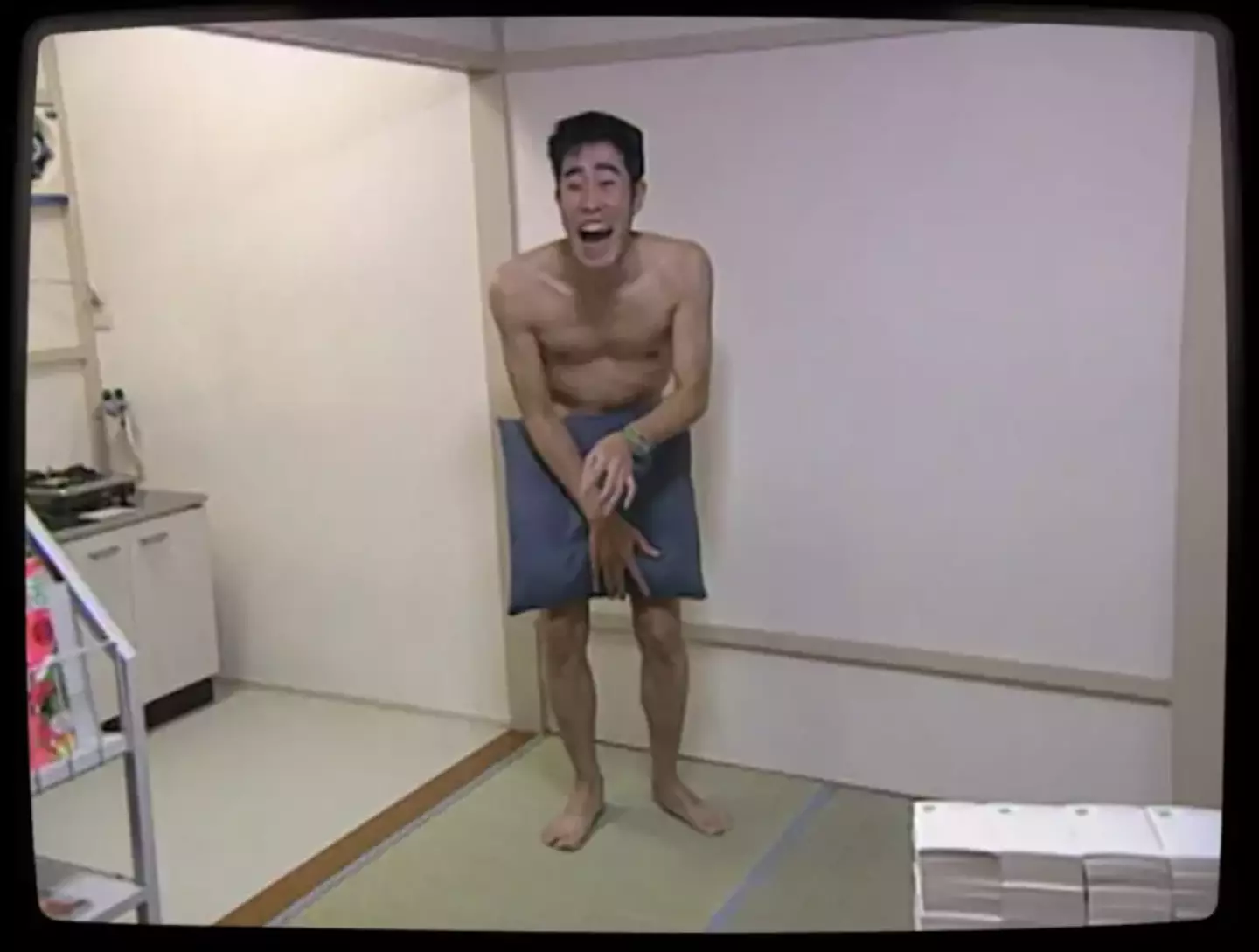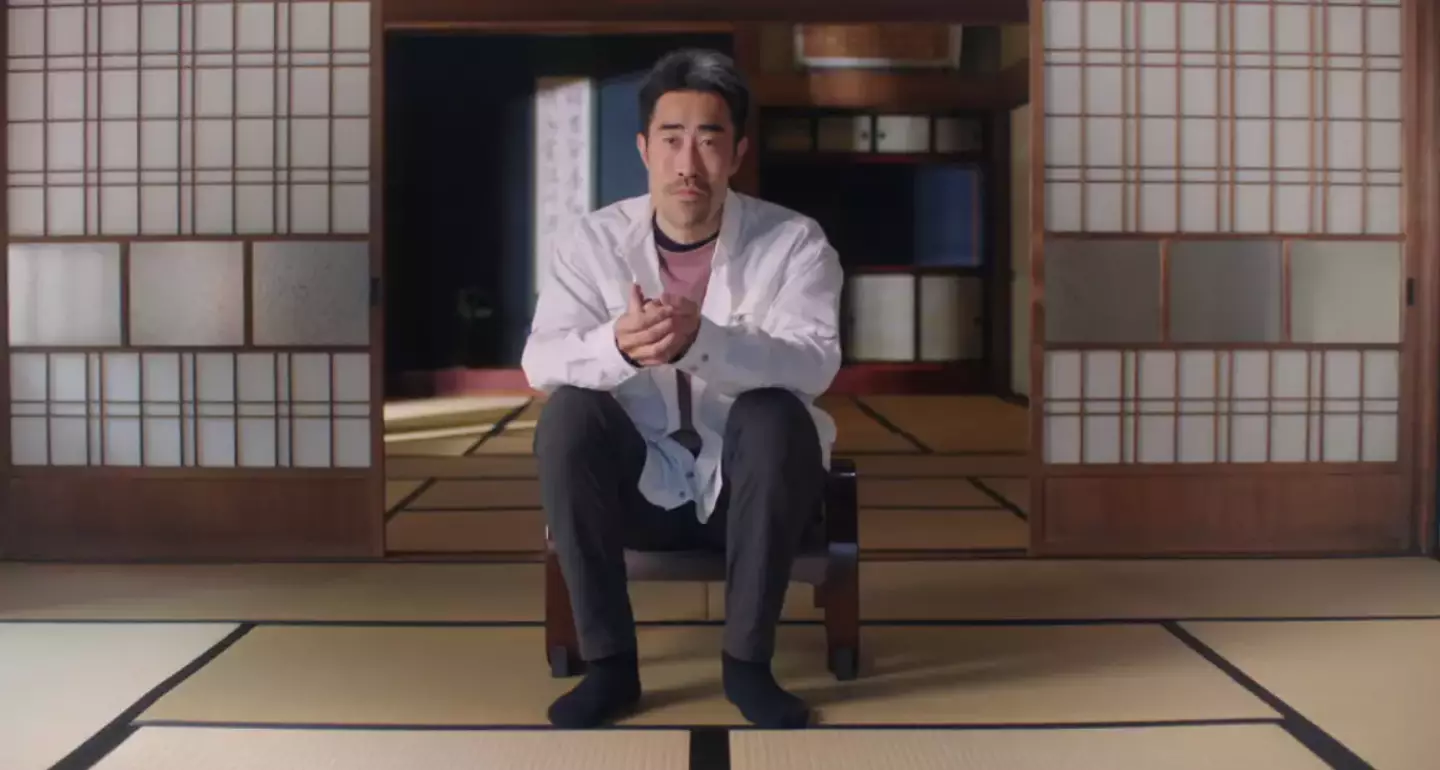.png)
The case of a Japanese man who endured a dangerous and demeaning reality television challenge for more than a year was recently made the subject of a startling documentary.
The British programme The Contestant was released in 2023, tells the story of comedian Tomoaki Hamatsu (nicknamed 'Nasubi') who, back in 1998, was cast in the competition series Susunu! Denpa Shōnen.
Little did Hamatsu know upon his signing, that his experience would later be branded the 'real-life Truman Show', based on the Jim Carrey psychological-comedy blockbuster of the same name.
For those in need of a reminder, The Truman Show centres on Carrey's character Truman, who lives his whole life unaware that he's actually been the star of a secret television series since his birth, and that his friends, family and colleagues are all paid actors.
Advert
Who is Tomoaki Hamatsu?
Hamatsu was born in Fukushima in 1975. He had ambitions to go into comedy, telling This American Life that his cop father 'wasn't thrilled', adding: "And we had to go through some things to get him around to the idea. And he said [that] the one thing that I must never do in public is strip."
In 1998, the then 22-year-old auditioned for the TV show, with the hopes to achieve fame as a comedian through it. However, he didn't know any details of what the show was about it saw him filmed everyday for over a year, the footage of which was broadcast online each night.
What happened in the show?
Alongside a number of fellow stars, the comic was instructed to take on a number of extreme challenges, one of which was titled 'A Life in Prizes' - or 'Denpa Shōgen' in Japanese.
The segment featured Hamatsu alone, and saw him moved to a tiny apartment which contained online a small table, a stack of magazines, and a collection of blank postcards. His clothes were removed, and he was handed only a pillow to cover his intimate regions.
Inspired by magazine sweepstakes that were popularised in Japan in the 90s, Hamatsu was challenged to sustain himself for as long as possibly, only be using prizes he received from filling them in.
For over 12 months, the comedian filled out thousands of postcards, surviving on the likes of half-cooked rice and dog food. He also received zero contact from the outside world - aside from the occasional visit from producer Toshio Tsuchiya.

Viewers tuned into the show every week of that year to see Hamatsu endure degrading living conditions and social isolation, unaware that he'd become somewhat of a national sensation.
Die-hard fans of the show were also permitted to tune into a live stream that lasted 24 hours of the day.
Despite knowing the challenge would be filmed, he was left under the impression that his segment would air at a later date, or some parts wouldn't be used at all.
After being taken to a room in Korea and instructed to win money for his flight back to Japan, Hamatsu's final challenge involved him standing naked as the walls around him collapsed to reveal him in front of a live-studio audience.
It was at this point he realised that he had been on TV the whole time.
What has Hamatsu said about it?
As we say, the story of Hamatsu's controversial fame was recently told in a new documentary produced by British filmmaker Clair Titley, with the comedian also appearing in it.
Speaking to the Los Angeles Times in 2023, he was asked whether he'd rewatched the reality TV series since its release over two decades ago.
"I tried so many times to watch it but emotionally it was very difficult. I just couldn’t do it," the comedian admitted. "It might be fine for people to watch, but I felt humiliated watching myself in that situation."
Hamatsu also admitted why he believes he was able to endure the challenge for so long.

"I myself thought it wasn’t going to last," he said. "How could anybody live just on contest prizes for such a long time? I thought the maximum would be one or two months.
"It was very difficult mentally. You start to think it’s safer to stay in the same environment than changing the environment. I was trapped physically and mentally as a result."
He continued: "I also wanted to have mental fortitude, just because this is something that I decided I would participate in, so I did not want to quit. I wanted to go through until the end.
"Physically it was hard, but that’s something you can really get over. Your body will get used to it.
"The solitude, the loneliness — that’s the hardest part."
Topics: TV And Film, Documentaries, Real Life, Reality TV, Life, True Life